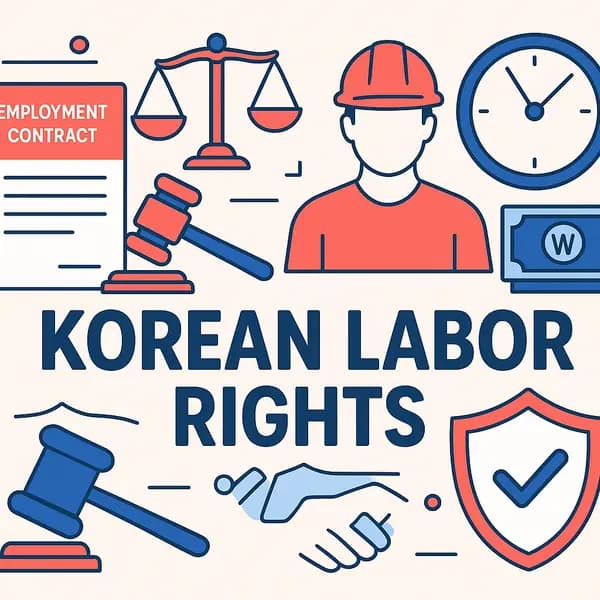
Labor Rights & Employment in Korea
Know your rights as a foreign worker in Korea, including contracts, wages, and workplace protections.
Labor Rights & Employment in Korea
⚖️ Note: This guide contains basic information. Full content will be added soon via the admin panel.
Overview
Know your rights as a foreign worker in Korea, including contracts, wages, and workplace protections.
Key Information
📋 What You'll Learn
- Essential requirements and procedures
- Step-by-step instructions
- Costs and fees
- Tips and recommendations
💡 Quick Tips
- Check official requirements
- Prepare documents in advance
- Ask for help if needed
- Keep copies of everything
Getting Started
Detailed information for this guide is being prepared. You can:
- Check the related guides below
- Visit official government websites
- Contact us with specific questions
🎯 Coming Soon
Full detailed content including:
- Comprehensive step-by-step guides
- Required documents and forms
- Cost breakdowns and comparisons
- Tips from expats
- Frequently asked questions
Edit this guide: Admins can update this content at /admin/guides
Related Guides:
Was this guide helpful?
Views: 0 • Last updated: 11/11/2025